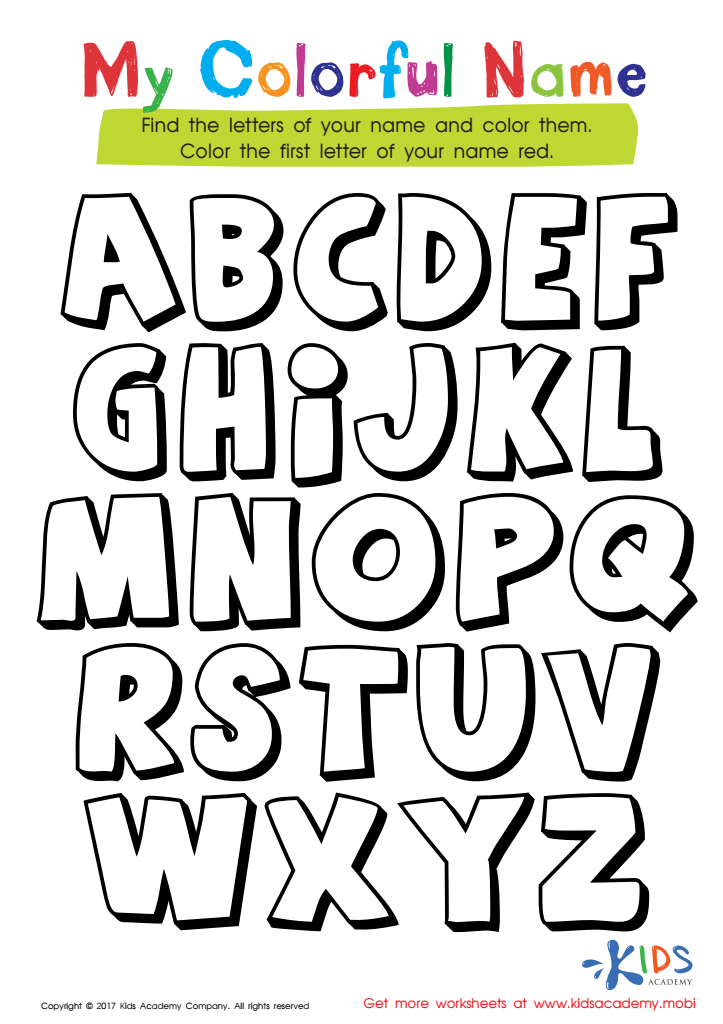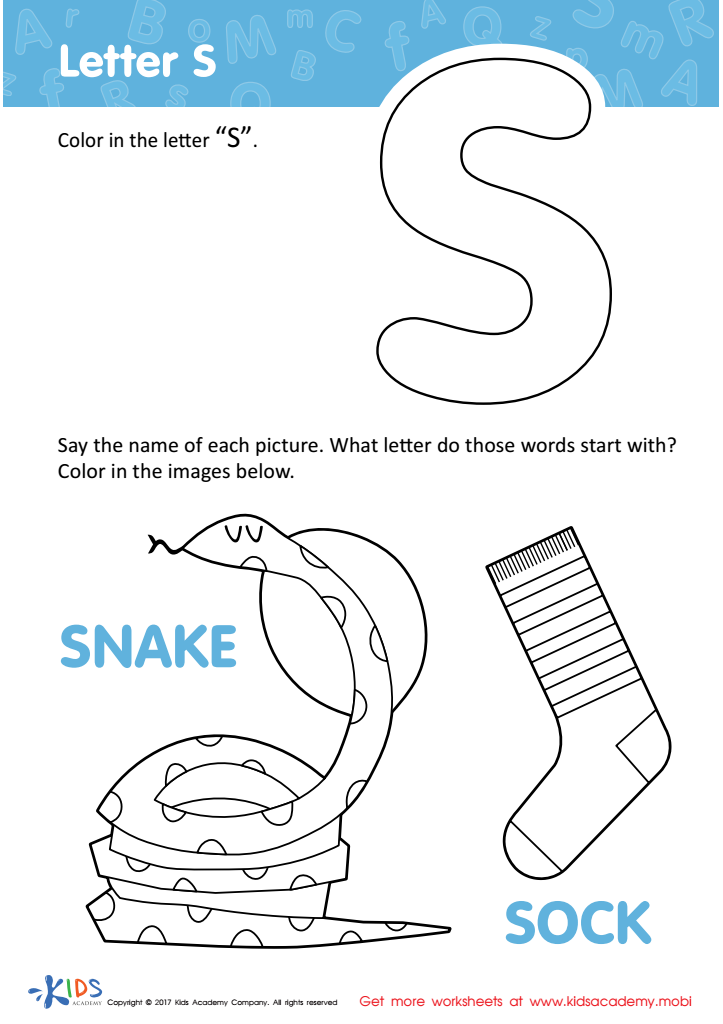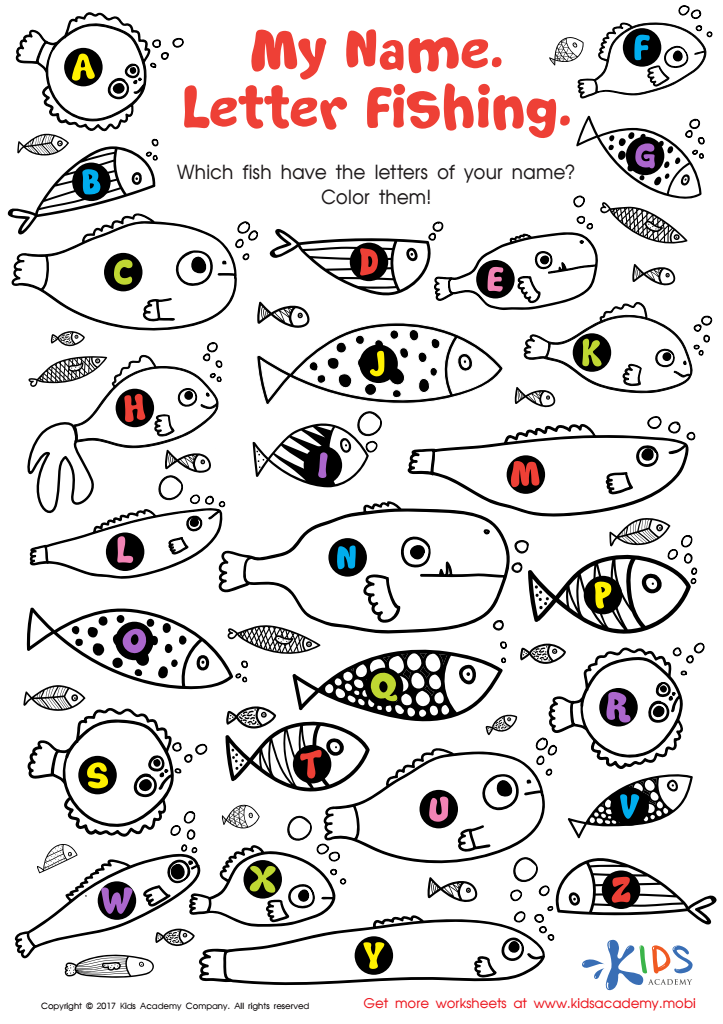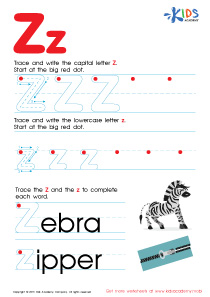Fine motor skills improvement ABC Coloring Pages Worksheets for Ages 3-4
3 filtered results
-
From - To
Enhance your child's fine motor skills with our ABC Coloring Pages Worksheets designed for ages 3-4! These engaging and educational worksheets allow young learners to practice their alphabet while improving hand-eye coordination and dexterity. Each page features playful illustrations and bold letters, making it fun and easy for little hands to color and trace. Perfect for early learners, these printables lay a solid foundation for writing while stimulating creativity. Download now to give your child a head start in learning the alphabet and developing essential motor skills in a fun, interactive way!


My Colorful Name Worksheet


Letter S Coloring Sheet


My Name: Letter Fishing Worksheet
Fine motor skills are crucial for young children aged 3-4 as they form the foundation for future academic and daily living activities. ABC coloring pages offer a fascinating and effective method to enhance these skills. Here’s why both parents and teachers should prioritize them:
Firstly, ABC coloring pages engage children in the careful handling of crayons or pencils, requiring them to concentrate on coloring within the lines. This meticulous task enhances dexterity, hand-eye coordination, and precise movements essential for future writing abilities.
Secondly, using ABC-themed coloring pages introduces children to letters and basic literacy concepts in an enjoyable and relaxed setting. By simultaneously improving fine motor skills and letter recognition, children build a dual foundation for both language and physical development.
These activities also augment patience and attention to detail. As children remain focused on completing their coloring pages, they inadvertently cultivate vital cognitive skills like sustained attention and perseverance.
Lastly, coloring provides a creative outlet, encouraging self-expression and an appreciation for colors, shapes, and artistic creation—critical components of a well-rounded early education.
Investment in ABC coloring pages is not just about keeping children entertained; it’s an early stepping stone towards their academic success and everyday competency. Thus, prioritizing these tools aligns with the broader objective of fostering proficient and healthy development in young learners.
 Assign to My Students
Assign to My Students











